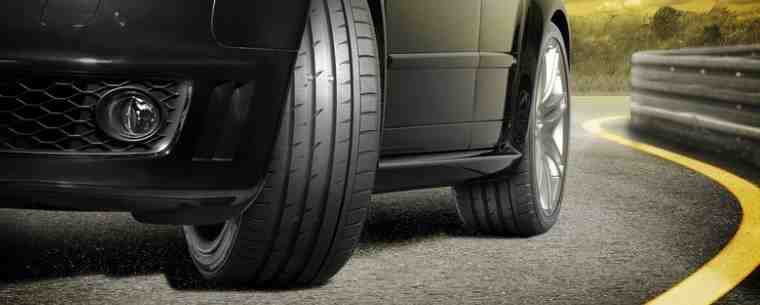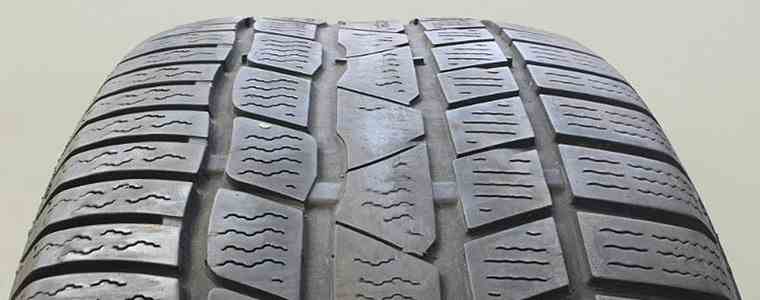Understanding the Tyre Warranty Process
Jack Dreyer | Monday 17th January 2022 2:15pm

If youíve ever needed new car tyres (and, unless you are new to the road, it's quite likely you have) thereís a good chance that youíve been at a loss for which option to get. Itís not surprising since, to the untrained eye, all tyres look pretty much the same.
The reality, however, is very different. There are many factors that can (and indeed should) influence your tyre buying decision. A few of these are: how often you drive, where you typically drive, your driving style, and what type of car you have - not to mention what you typically use your car for day to day. Since there are different combinations of answers for different drivers, it shouldnít come as a surprise to learn that there are different tyres for all uses.
Tyre experts, like those at your local Kwik Fit centre, can offer objective advice on all of these crucial considerations to help you make an informed choice, but itís also worth bearing in mind that the tyre you choose will likely come with a warranty.
If youíve ever wondered what's covered, what isnít, or what youíd need to do if you felt a need to claim on your warranty, this article will help to explain the tyre warranty process and point out some important details worth knowing about.
So what does a tyre warranty cover?
Tyre warranties are somewhat complex. For starters they generally do not cover either of the following:
Normal wear
The required frictional contact and the interaction between the tyre and road surface means that the rubber compounds tyres are made from will wear over time. How quickly this wear happens depends on many variables, the consistency of the rubber compound, the performance priorities of the tyre, how you drive (aggressive driving really speeds up wear) and obviously how many miles you drive.The point is, wear will occur and is not normally covered by a tyre warranty because most factors that affect its rate are outside the tyre manufacturer's control.
Maintenance and accidental damage
The driver has a key part to play and can influence how well the tyre performs and lasts. If you donít look after your tyres, they can wear more quickly, have less grip, and wear prematurely in key places. Similarly, if you drive over kerbstones or sleeping policemen carelessly or are unluckly enough to strike an object in the road, your tyres can show signs of damage. Again, the point is, any tyre expert will be able to spot this kind of premature wear or damage and Ė because itís caused by a lack of maintenance (or, unfortunately, bad luck) Ė itís also not going to be covered by the warranty. You wouldnít expect it to be.

The normal tyre wear incurred through driving is not covered by a tyreís warranty
So we now know what isnít covered by a tyre warranty, what is? The answer to this is quite simple. Once you have had your new tyres fitted, mobile or otherwise, if you think somethingís not quite right, like if the handlingís off, or if the tyres are excessively noisy, or you see anything else that seems wrong, itís time to act. But how?
If you suspect your tyres are faulty, hereís what you should do
These days, modern tyre design and production are extremely technology-driven, and brands like Continental not only have very stringent quality control processes in place, they also test new tyre models extensively before theyíre made available to buy. As such, manufacturing defects are exceedingly rare Ė certainly among the premium brands.
But not impossible. And in the case where a manufacturing fault has occurred, itís important for you to know you have rights and there are established processes Ė laid down by the British Tyre Manufacturers Association (BTMA) Ė to protect you. The standard complaint process can be found along with the standard complaint form which can be downloaded directly from the BTMA's website.
Here are the steps you should follow:
- Consider whatís not covered by the tyre warranty (normal wear, and accidental damage) and make sure it isnít due to these (your insurer may be able to help here) or poor maintenance on your part. If youíre satisfied itís nothing to do with these thingsÖ
- Donít delay. The sooner you report a tyre manufacturing problem, the easier it will be to prove. Over time, it becomes harder to judge whether a problem is due to a fault or to normal tyre wear, so act quickly.
- Go back to the centre where you bought your tyres (this also applies if you bought your tyres online Ė your rights are identical). Following an initial inspection of the tyre, if no clear fault can be found then it may be that it needs to be returned to the manufacturer for a full technical examination before reaching a decision. You can also request this if you do not agree with the technicianís conclusion. There is no cost to you for this service but you may need to buy a replacement tyre while the tyre in question is sent back for inspection.
- Following the technical examination of your tyre there could be any one of a range of outcomes Ė from a full refund/replacement tyre to partial compensation, or to rejection of the claim. If this happens, the retailer is obliged to explain the reasons to you. In some cases, if the tyre is sent back to the manufacturer for further examination then you should receive an explanation from them. For example in the case of a Continental tyre that has been returned for examination, you will receive a full written explanation with photographs of your tyre explaining the reasons for the condition for which the tyre was returned, if rejected, so you are fully informed.
- If your car is new and you suspect the tyres are faulty, go back to your vehicle dealer. Tyres are not normally covered by vehicle warranties, but your dealer still has a responsibility to advise you on the next course of action and they also have the ability to return the tyre to the manufacturer, either through their tyre supplier or directly as in the above instance.
How long does tyre warranty last?
At Kwik Fit, every tyre we fit comes with a lifetime mileage warranty. All new tyres are covered against manufacturing defects throughout the legal life of the tyre.
Unsure about the tyre warranty process? Talk to us
Itís always best to ask an expert for advice on the best tyres for you and your car, including the tyre warranty process. Your local Kwik Fit team can answer questions about tyre safety and maintenance if you suspect your tyres are faulty. For advice on tyre fitting solutions and much, much more, pop into your local Kwik Fit.
Any facts, figures and prices shown in our blog articles are correct at time of publication.
Featured Articles
Is it Illegal to Drive With One Headlight?
Saturday 19th July 2025
Wondering if itís illegal to drive with one headlight? Learn about the safety risks and penalties of illegal blown bulbs and why you should fix them promptly.
Air Con in EVs & Hybrids: Experts Answer Your Questions
Monday 30th June 2025
Does air con drain EV batteries? Can you use the air con while charging an electric car? Find out the answers to these questions & more from Kwik Fitís experts.
Why Is Your Car Making a Noise? Fixes & Tips
Friday 13th June 2025
When your car starts making unexpected noises, it can certainly be quite disconcerting; it may be nothing to worry about, but hereís what you need to know.









